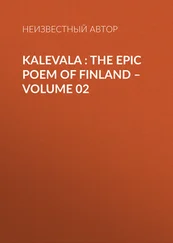Неизвестный автор - The Anglo-Saxon Chronicle
Здесь есть возможность читать онлайн «Неизвестный автор - The Anglo-Saxon Chronicle» — ознакомительный отрывок электронной книги совершенно бесплатно, а после прочтения отрывка купить полную версию. В некоторых случаях можно слушать аудио, скачать через торрент в формате fb2 и присутствует краткое содержание. Жанр: foreign_prose, История, foreign_edu, foreign_antique, на английском языке. Описание произведения, (предисловие) а так же отзывы посетителей доступны на портале библиотеки ЛибКат.
- Название:The Anglo-Saxon Chronicle
- Автор:
- Жанр:
- Год:неизвестен
- ISBN:нет данных
- Рейтинг книги:4 / 5. Голосов: 1
-
Избранное:Добавить в избранное
- Отзывы:
-
Ваша оценка:
- 80
- 1
- 2
- 3
- 4
- 5
The Anglo-Saxon Chronicle: краткое содержание, описание и аннотация
Предлагаем к чтению аннотацию, описание, краткое содержание или предисловие (зависит от того, что написал сам автор книги «The Anglo-Saxon Chronicle»). Если вы не нашли необходимую информацию о книге — напишите в комментариях, мы постараемся отыскать её.
The Anglo-Saxon Chronicle — читать онлайн ознакомительный отрывок
Ниже представлен текст книги, разбитый по страницам. Система сохранения места последней прочитанной страницы, позволяет с удобством читать онлайн бесплатно книгу «The Anglo-Saxon Chronicle», без необходимости каждый раз заново искать на чём Вы остановились. Поставьте закладку, и сможете в любой момент перейти на страницу, на которой закончили чтение.
Интервал:
Закладка:
The Anglo-Saxon Chronicle
ORIGINAL INTRODUCTION TO INGRAM'S EDITION [1823]
England may boast of two substantial monuments of its early history; to either of which it would not be easy to find a parallel in any nation, ancient or modern. These are, the Record of Doomsday 1 1 Whatever was the origin of this title, by which it is now distinguished, in an appendix to the work itself it is called "Liber de Wintonia," or "The Winchester-Book," from its first place of custody.
and the "Saxon Chronicle" 2 2 This title is retained, in compliance with custom, though it is a collection of chronicles, rather than one uniform work, as the received appellation seems to imply.
. The former, which is little more than a statistical survey, but contains the most authentic information relative to the descent of property and the comparative importance of the different parts of the kingdom at a very interesting period, the wisdom and liberality of the British Parliament long since deemed worthy of being printed 3 3 In two volumes folio, with the following title: "Domesday-Book, seu Liber Censualis Willelmi Primi Regis Angliae, inter Archlyos Regni in Domo Capitulari Westmonasterii asservatus: jubente rege augustissimo Georgio Tertio praelo mandatus typis MDCCLXXXIII"
among the Public Records, by Commissioners appointed for that purpose. The other work, though not treated with absolute neglect, has not received that degree of attention which every person who feels an interest in the events and transactions of former times would naturally expect. In the first place, it has never been printed entire, from a collation of all the MSS. But of the extent of the two former editions, compared with the present, the reader may form some idea, when he is told that Professor Wheloc's "Chronologia Anglo-Saxonica", which was the first attempt 4 4 Gerard Langbaine had projected such a work, and had made considerable progress in the collation of MSS., when he found himself anticipated by Wheloc.
of the kind, published at Cambridge in 1644, is comprised in less than 62 folio pages, exclusive of the Latin appendix. The improved edition by Edmund Gibson, afterwards Bishop of London, printed at Oxford in 1692, exhibits nearly four times the quantity of the former; but is very far from being the entire 5 5 "Nunc primum integrum edidit" is Gibson's expression in the title-page. He considers Wheloc's MSS. as fragments, rather than entire chronicles: "quod integrum nacti jam discimus." These MSS., however, were of the first authority, and not less entire, as far as they went, than his own favourite "Laud". But the candid critic will make allowance for the zeal of a young Bachelor of Queen's, who, it must be remembered, had scarcely attained the age of twenty-three when this extraordinary work was produced.
chronicle, as the editor considered it. The text of the present edition, it was found, could not be compressed within a shorter compass than 374 pages, though the editor has suppressed many notes and illustrations, which may be thought necessary to the general reader. Some variations in the MSS. may also still remain unnoticed; partly because they were considered of little importance, and partly from an apprehension, lest the commentary, as it sometimes happens, should seem an unwieldy burthen, rather than a necessary appendage, to the text. Indeed, till the editor had made some progress in the work, he could not have imagined that so many original and authentic materials of our history still remained unpublished.
To those who are unacquainted with this monument of our national antiquities, two questions appear requisite to be answered:– "What does it contain?" and, "By whom was it written?" The indulgence of the critical antiquary is solicited, whilst we endeavour to answer, in some degree, each of these questions.
To the first question we answer, that the "Saxon Chronicle" contains the original and authentic testimony of contemporary writers to the most important transactions of our forefathers, both by sea and land, from their first arrival in this country to the year 1154. Were we to descend to particulars, it would require a volume to discuss the great variety of subjects which it embraces. Suffice it to say, that every reader will here find many interesting facts relative to our architecture, our agriculture, our coinage, our commerce, our naval and military glory, our laws, our liberty, and our religion. In this edition, also, will be found numerous specimens of Saxon poetry, never before printed, which might form the ground-work of an introductory volume to Warton's elaborate annals of English Poetry. Philosophically considered, this ancient record is the second great phenomenon in the history of mankind. For, if we except the sacred annals of the Jews, contained in the several books of the Old Testament, there is no other work extant, ancient or modern, which exhibits at one view a regular and chronological panorama of a PEOPLE, described in rapid succession by different writers, through so many ages, in their own vernacular LANGUAGE. Hence it may safely be considered, nor only as the primaeval source from which all subsequent historians of English affairs have principally derived their materials, and consequently the criterion by which they are to be judged, but also as the faithful depository of our national idiom; affording, at the same time, to the scientific investigator of the human mind a very interesting and extraordinary example of the changes incident to a language, as well as to a nation, in its progress from rudeness to refinement.
But that the reader may more clearly see how much we are indebted to the "Saxon Chronicle", it will be necessary to examine what is contained in other sources of our history, prior to the accession of Henry II., the period wherein this invaluable record terminates.
The most ancient historian of our own island, whose work has been preserved, is Gildas, who flourished in the latter part of the sixth century. British antiquaries of the present day will doubtless forgive me, if I leave in their original obscurity the prophecies of Merlin, and the exploits of King Arthur, with all the Knights of the Round Table, as scarcely coming within the verge of history. Notwithstanding, also, the authority of Bale, and of the writers whom he follows, I cannot persuade myself to rank Joseph of Arimathea, Arviragus, and Bonduca, or even the Emperor Constantine himself, among the illustrious writers of Great Britain. I begin, therefore, with Gildas; because, though he did not compile a regular history of the island, he has left us, amidst a cumbrous mass of pompous rhapsody and querulous declamation some curious descriptions of the character and manners of the inhabitants; not only the Britons and Saxons, but the Picts and Scots 6 6 The reader is forcibly reminded of the national dress of the Highlanders in the following singular passage: "furciferos magis vultus pilis, quam corporum pudenda, pudendisque proxima, vestibus tegentes."
. There are also some parts of his work, almost literally transcribed by Bede, which confirm the brief statements of the "Saxon Chronicle" 7 7 See particularly capp. xxiii. and xxvi. The work which follows, called the "Epistle of Gildas", is little more than a cento of quotations from the Old and New Testament.
. But there is, throughout, such a want of precision and simplicity, such a barrenness of facts amidst a multiplicity of words, such a scantiness of names of places and persons, of dates, and other circumstances, that we are obliged to have recourse to the Saxon Annals, or to Venerable Bede, to supply the absence of those two great lights of history—Chronology and Topography.
The next historian worth notice here is Nennius, who is supposed to have flourished in the seventh century: but the work ascribed to him is so full of interpolations and corruptions, introduced by his transcribers, and particularly by a simpleton who is called Samuel, or his master Beulanus, or both, who appear to have lived in the ninth century, that it is difficult to say how much of this motley production is original and authentic. Be that as it may, the writer of the copy printed by Gale bears ample testimony to the "Saxon Chronicle", and says expressly, that he compiled his history partly from the records of the Scots and Saxons 8 8 "De historiis Scotorum Saxonumque, licet inimicorum," etc. "Hist. Brit. ap." Gale, XV. Script. p. 93. See also p. 94 of the same work; where the writer notices the absence of all written memorials among the Britons, and attributes it to the frequent recurrence of war and pestilence. A new edition has been prepared from a Vatican MS. with a translation and notes by the Rev. W. Gunn, and published by J. and A. Arch.
Интервал:
Закладка:
Похожие книги на «The Anglo-Saxon Chronicle»
Представляем Вашему вниманию похожие книги на «The Anglo-Saxon Chronicle» списком для выбора. Мы отобрали схожую по названию и смыслу литературу в надежде предоставить читателям больше вариантов отыскать новые, интересные, ещё непрочитанные произведения.
Обсуждение, отзывы о книге «The Anglo-Saxon Chronicle» и просто собственные мнения читателей. Оставьте ваши комментарии, напишите, что Вы думаете о произведении, его смысле или главных героях. Укажите что конкретно понравилось, а что нет, и почему Вы так считаете.







